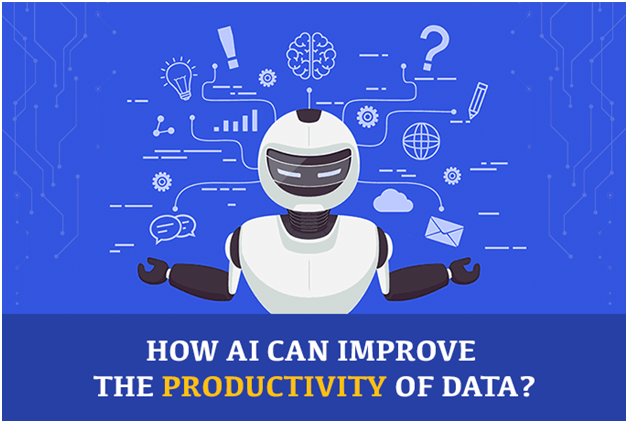Latest news about Bitcoin and all cryptocurrencies. Your daily crypto news habit.

In the promising AI-powered economy, data is considered one of the most important strategic resources for companies. It plays a vital role in whether it is related to the company’s product decisions or customer service issues. The data shows its significance everywhere including small businesses, Fortune 500 Companies, and modern enterprises.
Managing data involves the task of processing and storing which is measured as a considerable undertaking. It becomes a great challenge for the IT department to handle the vast amounts of data. In this situation, this huge storage of data can be organized and sorted out by Artificial Intelligence and Machine Learning.
As per the prediction of International Data Corporation (IDC) “The spending on AI and Ml will grow from $12B in 2017 to $57.6B” by 2021.
AI holds the potential to offer new improvements in data management. Let’s discuss how!
1. Protecting data
In the tech sector, the data — first businesses are on the rise. The priority is not only to collect data and lay down it for the good use but also secure it. AI has to judge which data should be protected, up to what level and to sort out which type of data is not adequately protected. The biggest data teams can be managed by the execution of the smart and flexible rules with the involvement of AI in the data management game.
2. Counting legacy data
The older data which has not been digitized and moved into big data systems hold a lot of value. This data can become accessible due to AI. The legacy data that is in offline or inadequately digitized formats can be processed by making use of AI NLP and AI image recognition. To convert images of old documents to machine-readable text, the businesses can employ AL/ML. For further processing, all these can be accumulated in data stores. The more extensive data sets can improve both business intelligence and AI efforts.
3. Mechanizing conventional data processing
AI can mechanize the routine data management tasks for starters. It takes account of data integration and data governance. On the basis of the origin, the data can be automatically ingested and arranged. In data streams, there is a lot of grunt work which AI can handle by establishing automated rules for data processing.
4. Building up new data rules
Businesses have to discover which data has to be stored and discarded. It mainly happens for those businesses that regularly produce large volumes of sensor data wherein segregation of data is needed. AI can assist in dealing with the data usage patterns. For compilation and maintenance, it recommends the most favorable strategies. It is a natural opportunity for AI to spot out the trends to optimize the data streams.
5. Determining data quality issues
AI can also execute the task of checking the data for quality sake. It can be utilized as the quality control for the sensors that have malfunctioned to the strategies of data mapping. On the basis of useful data, the conclusion is drawn by analytics and big data systems. The AI can be authorized to make corrections automatically when the data quality issues are discovered.
Wrapping up
In this digital age, artificial intelligence improves the efficiency of data management. The organizations can experience success because of AI. If the companies want to increase their productivity, then to choose one of the top Artificial Intelligence companies is the best option.
How AI Can Improve the Productivity of Data? was originally published in Hacker Noon on Medium, where people are continuing the conversation by highlighting and responding to this story.
Disclaimer
The views and opinions expressed in this article are solely those of the authors and do not reflect the views of Bitcoin Insider. Every investment and trading move involves risk - this is especially true for cryptocurrencies given their volatility. We strongly advise our readers to conduct their own research when making a decision.